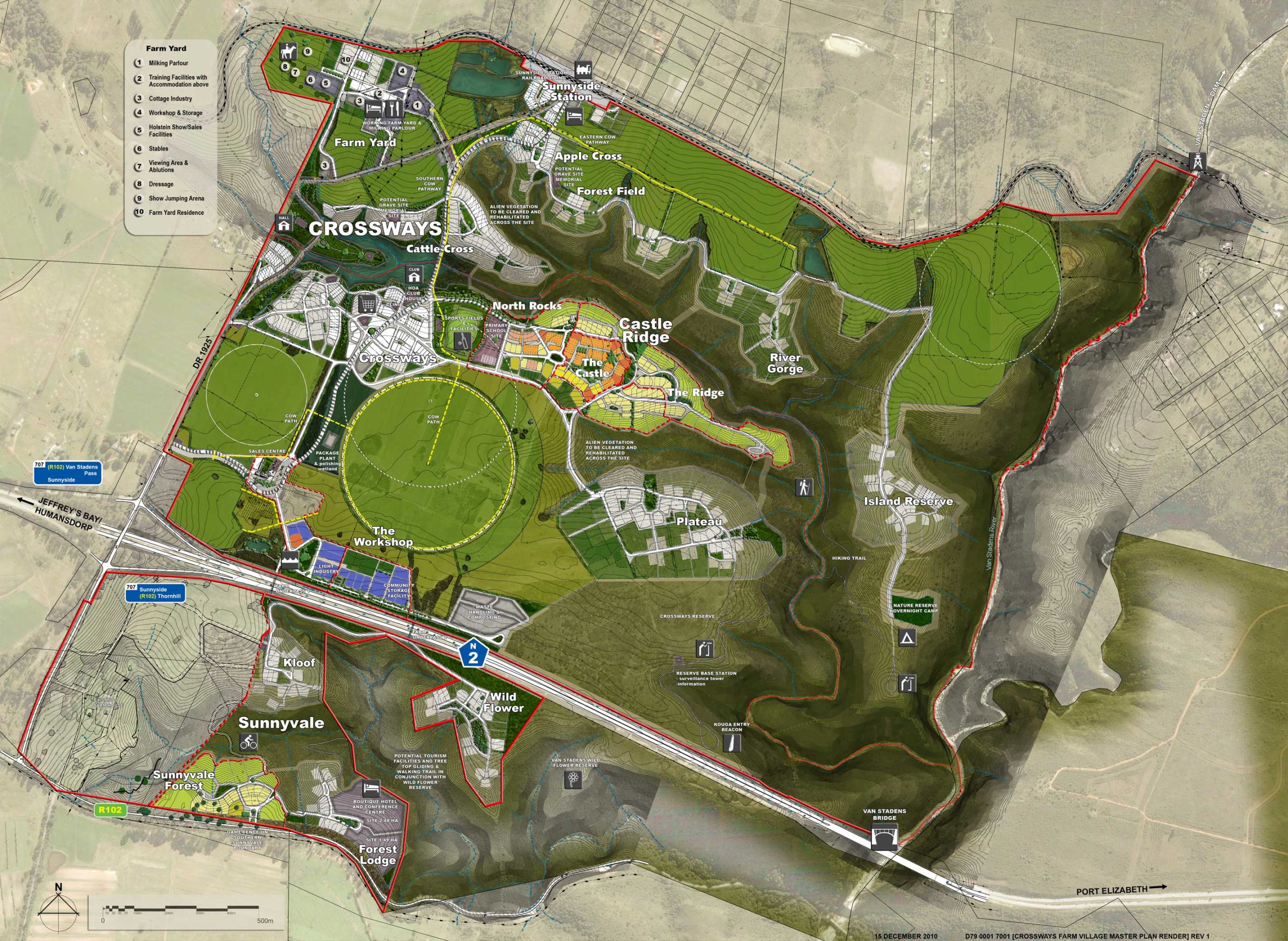Conservation Project
Contemporary Rural New Town
30km from Port Elizabeth towards Jeffreys Bay, N2, South Africa
-33.8948111, 25.186225


South Africa’s first declared Rural New Town
Crossways Farm Villages is a 520-hectare property of natural mountains, gorges and farmable land, and is divided into three sustainable nodes: One each for conservation, urban agriculture including the working dairy farm, and sustainable living consisting of a residential component. The latter comprises 732 erven including open communal spaces, sport and recreational grounds and will cater for 660 private homes. Crossways overall encompasses 13 developments, of which 9 are residential, two are commercial, and two are industrial. Stands range from 220 to 8,500 square meters in size.
Crossways' concept is to create networks between people of different income levels as well as to build linkages between human settlement and the natural environment. From farm to hand - inducing environmentally and economically viable and sustainable communities.
Crossways runs the development as a municipality: top-up electricity and potable water are purchased externally and distributed to residents, a wastewater treatment plant has been built, and public areas are managed including streetside vegetable gardens.
Crossways was designed and is being implemented by CMAI Architects, a multidisciplinary planning and design firm behind three of Knysna’s most successful communities (Belvidere Estate, Pezula Private Estate and Thesen Islands).
Dr Chris Mulder, founder and CEO, believes that the New Ruralism is an opportunity for South Africa and states that "land can be divided into only three categories: conservation, agriculture and human settlement". Crossways therefore is designed around the principles of food security, rural development, job creation, poverty alleviation and training. It embraces the nearby Thornhill community, 3000 individuals that will be an integral part of the growth projection.
Conservation & Community Highlights:
- About 180ha of the farm now reserved strictly for conservation;
- Nature-based activities: mountain biking, hiking, bird watching, swimming, horse riding experiences at the equestrian centre;
- All buildings on the project must conform to strict design and environmental guidelines;
- Requirements for energy efficiency, water harvesting, and sewerage (which is fed into the farm’s own bio-scrubbing system that delivers clean water to a wetland that further purifies it);
- ‘Labour-intensive design’: for example, lamp-posts or bollards must be made by local workers from raw materials, and must conform to a high level of artistry;
- Sustainability for the Thornhill Trust, which sees to the needs of the nearby local Thornhill Village, by allocating 2.5% of the initial purchase price of each title deed as a donation to the Trust, and a further 0.5% of the resale value of each property in perpetuity.